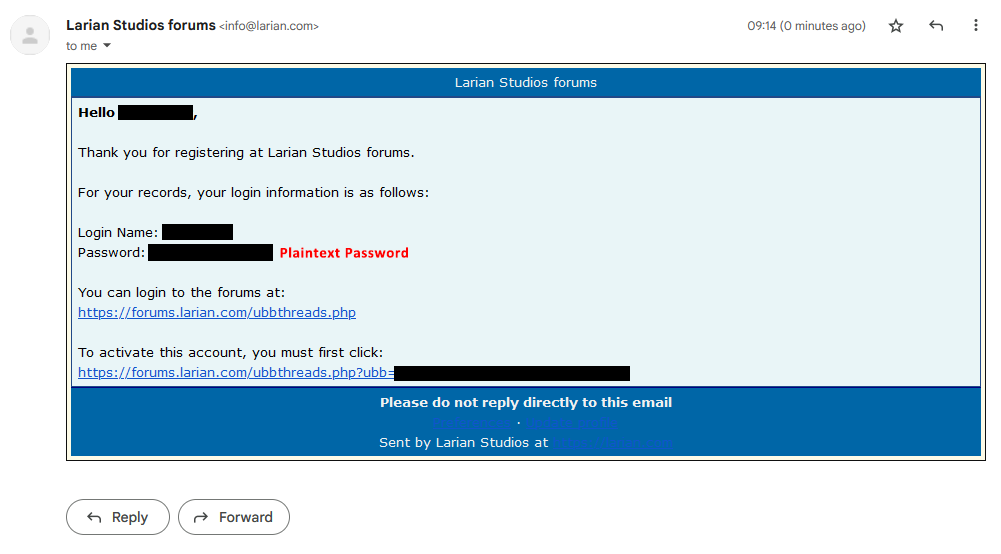Games

Welcome to the largest gaming community on Lemmy! Discussion for all kinds of games. Video games, tabletop games, card games etc.
Rules
1. Submissions have to be related to games
Video games, tabletop, or otherwise. Posts not related to games will be deleted.
This community is focused on games, of all kinds. Any news item or discussion should be related to gaming in some way.
2. No bigotry or harassment, be civil
No bigotry, hardline stance. Try not to get too heated when entering into a discussion or debate.
We are here to talk and discuss about one of our passions, not fight or be exposed to hate. Posts or responses that are hateful will be deleted to keep the atmosphere good. If repeatedly violated, not only will the comment be deleted but a ban will be handed out as well. We judge each case individually.
3. No excessive self-promotion
Try to keep it to 10% self-promotion / 90% other stuff in your post history.
This is to prevent people from posting for the sole purpose of promoting their own website or social media account.
4. Stay on-topic; no memes, funny videos, giveaways, reposts, or low-effort posts
This community is mostly for discussion and news. Remember to search for the thing you're submitting before posting to see if it's already been posted.
We want to keep the quality of posts high. Therefore, memes, funny videos, low-effort posts and reposts are not allowed. We prohibit giveaways because we cannot be sure that the person holding the giveaway will actually do what they promise.
5. Mark Spoilers and NSFW
Make sure to mark your stuff or it may be removed.
No one wants to be spoiled. Therefore, always mark spoilers. Similarly mark NSFW, in case anyone is browsing in a public space or at work.
6. No linking to piracy
Don't share it here, there are other places to find it. Discussion of piracy is fine.
We don't want us moderators or the admins of lemmy.world to get in trouble for linking to piracy. Therefore, any link to piracy will be removed. Discussion of it is of course allowed.
Authorized Regular Threads
Related communities
PM a mod to add your own
Video games
Generic
- !gaming@Lemmy.world: Our sister community, focused on PC and console gaming. Meme are allowed.
- !photomode@feddit.uk: For all your screenshots needs, to share your love for games graphics.
- !vgmusic@lemmy.world: A community to share your love for video games music
Help and suggestions
By platform
By type
- !AutomationGames@lemmy.zip
- !Incremental_Games@incremental.social
- !LifeSimulation@lemmy.world
- !CityBuilders@sh.itjust.works
- !CozyGames@Lemmy.world
- !CRPG@lemmy.world
- !OtomeGames@ani.social
- !Shmups@lemmus.org
- !VisualNovels@ani.social
By games
- !Baldurs_Gate_3@lemmy.world
- !Cities_Skylines@lemmy.world
- !CassetteBeasts@Lemmy.world
- !Fallout@lemmy.world
- !FinalFantasyXIV@lemmy.world
- !Minecraft@Lemmy.world
- !NoMansSky@lemmy.world
- !Palia@Lemmy.world
- !Pokemon@lemm.ee
- !Skyrim@lemmy.world
- !StardewValley@lemm.ee
- !Subnautica2@Lemmy.world
- !WorkersAndResources@lemmy.world
Language specific
- !JeuxVideo@jlai.lu: French
view the rest of the comments

There are yubikeys you can use to login, but it requires installing stuff on each computer you want to access. Nothing is simpler then passwords. :)
I used a yubikey for a while, they are alright, but I could only use it for logging on to a computer, not for logging into specific sites. Even though I guess that could be solved with a password manager integration.
Nothing is simpler than passwords. But we want something thats both simple and safe. Even for lazy people, tech-unsawy people, and people with bad memory.
What if every pc came with a jubikey-ish reader and every website supported a browser api for it? Probably not jubikey, but something that fit in a wallet like bank cards do (but also was an open tech so that anyone can implement and sell cards). Wouldn't it be both safer and simpler than passwords? It would take some time to turn around of course but the same was probably the case for https, 2fa, ipv6, and tpm's.
Those are called smart cards. Traditional smart cards needed centralized management of credentials, but FIDO2 smart cards exist that work like the keys. The reason tokens are more typically USB-based (or NFC) is every PC has USB, but most don’t have smart card readers.
Oh yeah... Definitely good IPv6 support everywhere. That really turned around, and we're not dragging our feet on implementing IPv6 at all 🥲.
FIDO2 can be used for passwordless log in on a few sites, but the site and browser need to support the feature (no extra installation). It sets a pin on the yubikey and when entered the key does all the authentication. It will likely be seen more as Apple “passkeys” gain more popularity, Windows and Android already have native support but don’t market as hard.